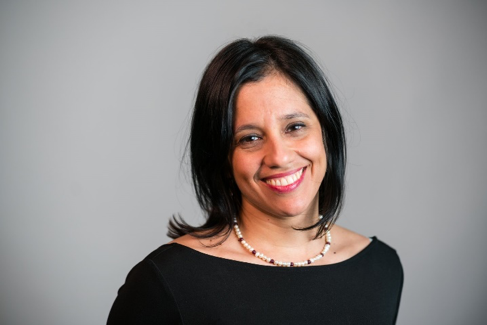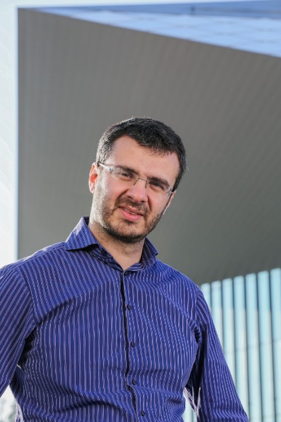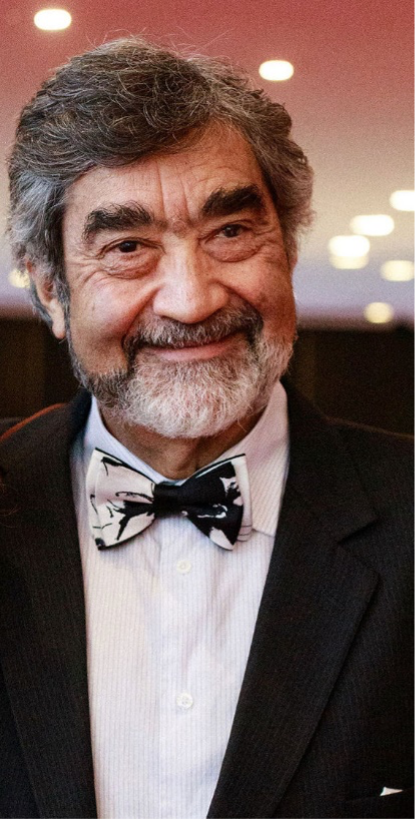Conference Information and Program
Final Program
The final TRISTAN XI program is available here:
2022_06_13-Tristan-XI-Program.pdf (20.4 Mb)
Commensurate with previous conferences, the program will involve both technical sessions, discussion and panel sessions, and social events. Also, there will be one full-day excursion on Wednesday (see Registration page).
Plenary speakers
Marta C. Gonzalez
Professor at University of California at Berkeley, USA
Biography

Marta C. Gonzalez is Associate Professor of City and Regional Planning at the University of California, Berkeley, and a Physics Research faculty in the Energy Technology Area (ETA) at the Lawrence Berkeley National Laboratory (Berkeley Lab).
She works in the urban science space, focusing on the intersections between people within social networks and the built and natural environments. Her goal is to design urban solutions through new technologies. To that end, she has developed tools that impact transportation research and discovered novel approaches to model human mobility and the adoption of energy technologies. Statistical physics of complex systems and network science informs her scientific approach. Gonzalez’s research includes applying big data to understanding human network behavior, with applications in transportation networks, energy efficiency planning, and disease proliferation characterization.
Prior to joining Berkeley, Marta worked as an Associate Professor of Civil and Environmental Engineering at MIT, a member of the Operations Research Center and the Center for Advanced Urbanism. She is a member of the scientific council of technology companies such as Gran Data, PTV and the Pecan Street Project consortium.
Nikolas Geroliminis
Professor at EPFL Lausanne, Switzerland

Biography
Prof. Nikolas Geroliminis is a Full Professor at EPFL and the head of the UrbanTransport Systems Laboratory (LUTS).
Before joining EPFL he was an Assistant Professor in the Department of Civil Engineering at the University of Minnesota. He has a diploma in Civil Engineering from the National Technical University of Athens (NTUA) and a MSc and Ph.D. in civil engineering from University of California, Berkeley. His research interests focus primarily on urban transportation systems, traffic flow theory and control, public transportation and on-demand transport, car sharing, Optimization and Large-Scale Networks.
He is a recipient of the ERC Starting Grant METAFERW: Modeling and controlling traffic congestion and propagation in large-scale urban multimodal networks. Among his recent initiatives is the creation of an open-science large-scale dataset of naturalistic urban trajectories of half a million vehicles that have been collected by one-of-a-kind experiment by a swarm of drones. Among other editorial responsibilities, he is currently the Editor-In-Chief of Transportation Research part C: Emerging Technologies.
Teodor Gabriel Crainic
Professor at Université du Québec à Montréal

Biography
Teodor Gabriel Crainic is Full Professor of Operations Research, Transportation, and Logistics, and holds the Chair on Intelligent Logistics and Transportation Systems Planning in the School of Management, Université du Québec à Montréal. He is also Adjunct Professor, Department of Computer Science and Operations Research, Université de Montréal, and senior scientist at CIRRELT, the Interuniversity Research Center for Enterprise Networks, Logistics and Transportation, where he is Director of the Intelligent Transportation Systems Laboratory.
Professor Crainic is a member of the Royal Society of Canada – The Academies of Arts, Humanities and Sciences of Canada. He co-founded, in 1991, the TRISTAN - TRienial Symposium on Transportation Analysis and, in 2000, the Odysseus - International Workshop on Freight Transportation and Logistics series of international meetings. He contributes to several editorial boards. He was President of the Transportation Science and Logistics Society of INFORMS, Director of the Centre for Research on Transportation (currently CIRRELT), and received the 2006 Merit Award of the Canadian Operational Research Society.
The research interests of Professor Crainic are in network, integer, and combinatorial optimization, meta-heuristics, and parallel computing applied to the planning and management of complex systems, particularly in transportation and logistics. Major contributions targeted the design, scheduling and management of consolidation-based carrier services, including uncertainty, resource and revenue management considerations, as well as routing and scheduling, Intelligent Transportation Systems, City Logistics, new business and organizational transportation and logistics models, regional planning of multimodal freight transportation systems, and combinatorial electronic markets.
Instructions for Presenters
The conference includes only oral presentations. Please note that presentations should be given in English only.
All presentations are allocated a certain timeslot. For the timing of the presentations, we kindly like to refer to the conference program.
The session presenters can present for 20 minutes + 10 minutes for Q&A.
Please keep to this timing!
Each session has a Chair who has the responsibility of moderating the session. There will be technical support and other helping hands helping out with the preparation of the presentation and the distribution of microphones to the audience.
We kindly ask you not to bring your own laptop, but to bring your presentation on a USB-key, as a laptop will be provided in all rooms. Changing laptops takes valuable time and might cause technical difficulties. Supported presentation formats are PowerPoint (16:9 format) or PDF.
Presentations can be uploaded before the start of the session in the room where your presentation will take place. We kindly ask you to be in the room 15 minutes before the start of your session. Please use this time also to locate and present yourself to the Chair of your session so she/he knows you are the presenter, and your presentation can be uploaded.
Please double check the timeslot of your presentation and the chair session with the conference program, since minor changes are still possible. To browse through the program, click here. For an overview of the presentations in each session, you can simply find the extended abstract in the USB-key in the conference package.